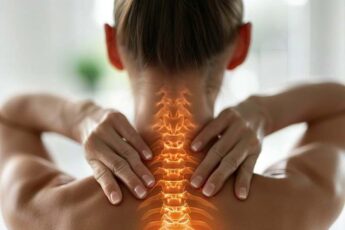
In many cases, heart disease, specifically ischemic heart disease, poses a significant health risk, especially for individuals over the age of 65. Ischemic heart disease is the most common cause of death worldwide. It is therefore crucial to identify the early signs and symptoms of this condition.
Causes of Ischemic Heart Disease
Ischemic heart disease falls under the umbrella of cardiovascular diseases. Often, the term “heart disease” is used interchangeably with a more specific diagnosis of ischemic heart disease. However, it’s essential to understand that not all heart conditions are synonymous with ischemic heart disease. This condition is characterized by a degenerative syndrome, indicating a progressive worsening over time. The underlying pathology involves the accumulation of certain proteins, known as plaques and tangles, in the arteries of the heart. These proteins impede the communication between nerve cells, leading to impaired cardiac function, particularly affecting memory and cognitive abilities. While scientific evidence linking these proteins directly to the development of ischemic heart disease is lacking, their presence, combined with risk factors such as hypertension and high cholesterol levels, increases the likelihood of developing the condition. The exact etiology of ischemic heart disease remains elusive.
Early Symptoms
One hallmark of ischemic heart disease is its insidious onset, starting with subtle symptoms that gradually worsen over time. Here are a few key symptoms that can help identify the early stages of ischemic heart disease:
- Chest Discomfort or Pain: This symptom is often the first indication of a problem. Individuals may experience sensations of pressure, tightness, or heaviness in the chest, which may radiate to the arms, shoulders, neck, jaw, or back. Such discomfort typically occurs during physical exertion or emotional stress and tends to alleviate with rest or medication.
- Shortness of Breath: Unexplained breathlessness, particularly during exertion or activities that were previously manageable, may signal reduced blood flow to the heart muscle.
- Fatigue: Persistent feelings of tiredness or weakness, even after adequate rest, can be an early indicator of compromised cardiac function.
- Angina: Chest pain or discomfort due to reduced blood flow to the heart is a classic symptom of ischemic heart disease. This discomfort may manifest as pressure, squeezing, burning, or tightness and is often triggered by physical or emotional stress.
It’s important to note that some individuals with ischemic heart disease may remain asymptomatic in the early stages. Regular medical check-ups, especially for those with risk factors such as hypertension, hypercholesterolemia, diabetes, obesity, smoking, or a family history of heart disease, are crucial for early detection and management of ischemic heart disease. If you experience any of these symptoms or have concerns about your heart health, consult a healthcare professional for evaluation and appropriate management.







